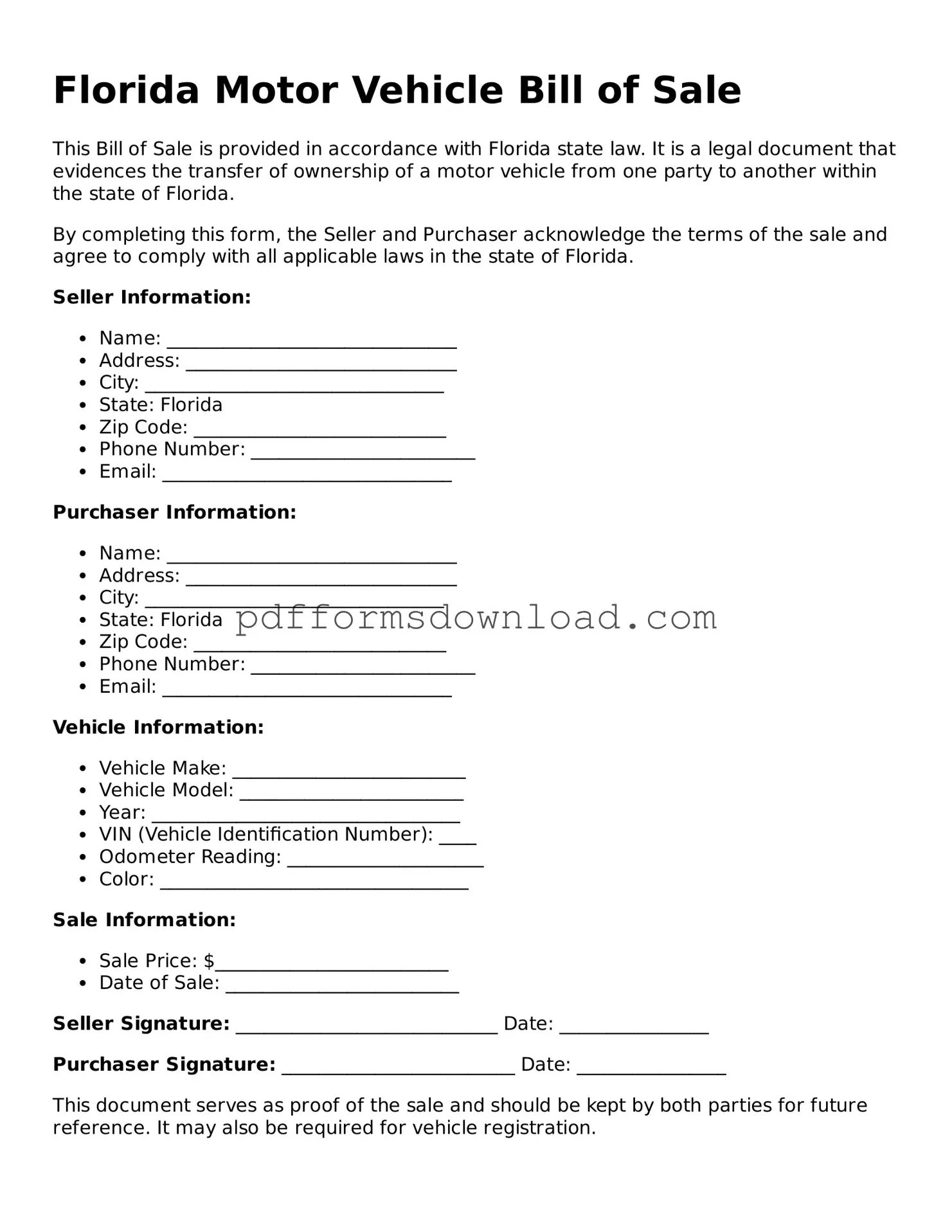Printable Florida Motor Vehicle Bill of Sale Form
The Florida Motor Vehicle Bill of Sale is a legal document that records the transfer of ownership of a vehicle from one party to another. This form serves as proof of the transaction and includes essential details such as the vehicle's identification number, sale price, and the names of both the buyer and seller. Ensure you complete this form accurately to protect your rights and responsibilities.
Ready to fill out the form? Click the button below to get started.
Make This Document Now

Printable Florida Motor Vehicle Bill of Sale Form
Make This Document Now

Make This Document Now
or
Free PDF File
Your form is almost ready
Complete your Motor Vehicle Bill of Sale online — edit, save, and download easily.